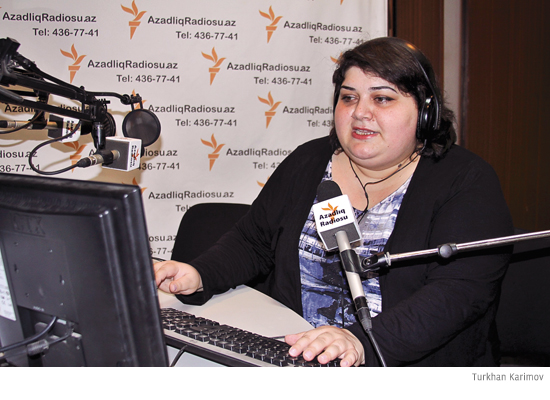
Radio Liberty’s Khadija Ismayilova has built her career on exposing corruption in oil-rich Azerbaijan. She did it largely without repercussion in a country where journalists are routinely harassed, beaten, and even murdered for their efforts.
Until now. On March 7, Ismayilova became the victim of an ongoing smear campaign. She received stills from a video of her having sex, along with a letter warning that she would be “shamed” if she did not abandon her investigation of links between President Ilham Aliyev’s family and lucrative building projects in Baku, the capital.
The video was posted online, and soon after the state-owned paper Yeni Azerbaijan published an article attacking Ismayilova’s character. It is not clear who is behind the campaign, though Aliyev’s critics blame his government.
It’s not exactly a stretch. Azerbaijan ranks in the bottom quarter of Reporters Without Borders 2011 Press Freedom Index. Eight journalists are currently in Azerbaijan’s prisons.
Women journalists, though, have largely been spared, according to Emin Huseynov, head of the Baku-based Institute for Reporters’ Freedom and Safety. Ismayilova’s case would seem to represent an end to that relative immunity—and it may have been simply a matter of time, anyway. According to a Wikileaks cable, Aliyev called her an “enemy of the state,” and asked American diplomats to get her fired.
If you want to remind President Aliyev that the world is watching, sign the petition sponsored by The Organized Crime and Corruption Reporting Project calling for the government of Azerbaijan to aggressively investigate the harassment of Ismayilova: http://www.ipetitions.com/petition/khadija/.
Amanda Erickson is a senior associate editor for The Atlantic Cities. She has previously written for The New York Times, The Washington Post, and The New Republic.
